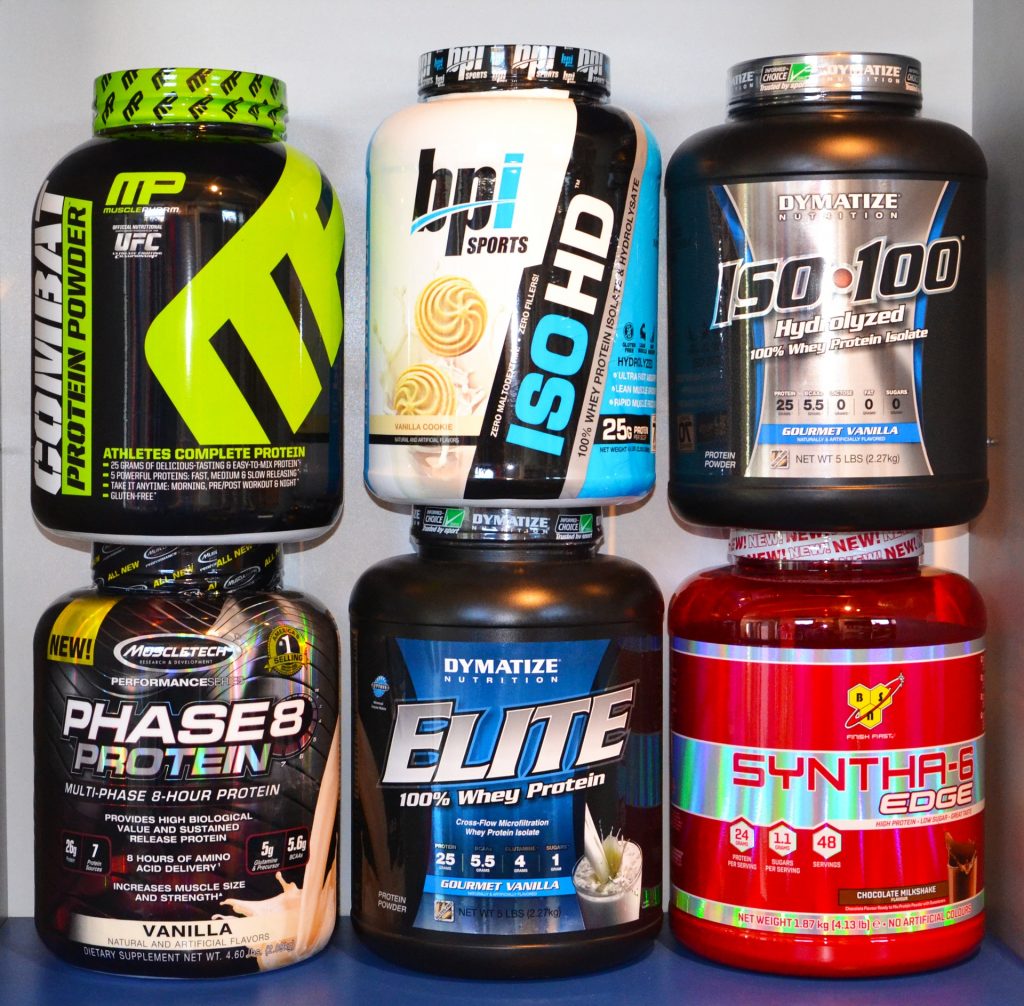Although protein powders may be a convenient on-the-go fix for college students, protein supplements are not recommended as a replacement of protein from food sources. Protein supplementation is not necessary if you have access to a diet that is healthy and contains adequate nutrients. For those who are trying to build muscle, supplementation may be acceptable if it does not exceed your adequate daily protein intake.

What is the Adequate Daily Protein Intake?
- Females (between the ages of 19-30): ~46 grams* of protein
- Males (between the ages of 19-30): ~56 grams* of protein
- Muscle building: 1.0 grams of protein per kilogram of body weight.
*based on 0.8 grams of protein per kilogram of body weight
Protein is an essential component of a well-balanced diet. When consuming an adequate amount of protein from food sources in one’s daily diet, it is not necessary to consume additional protein with protein supplements.
Examples of Protein Content in Common Foods:
| Food Item | Amount of Protein |
| 8 oz Milk | 8 grams |
| 1 Egg | 7 grams |
| 1 Tbsp Peanut Butter | 4.5 grams |
| 3 oz Meat, Fish, Poultry or Cheese | 21 grams |
| 1/2 Cup Grains | 3 grams |
Examples of Protein Content in Supplements:
| Type of Protein Supplement | Amount of Protein |
| Lean Protein Powder | 15-24 grams |
| Regular Protein Powder | 25-36-grams |
| Muscle Gainer Protein Powder | 37-55+ grams |
Comparing the grams of protein in common foods and protein supplements, it is easy to see how protein could be consumed in excess when supplements are used. Ideally, protein should be consumed primarily through food sources to meet your adequate daily protein intake, with unmet needs provided by protein supplement products.
Take Home Message:
Excess protein gets stored as fat and excess nitrogen is excreted in the urine. Excessive protein intake is not beneficial. In fact, excessive intake can cause:
- weight gain
- dehydration
- kidney problems
- nutrient deficiencies
Protein should be consumed as a dietary food source first, and if adequate amounts cannot be consumed, then protein supplementation may be acceptable.

